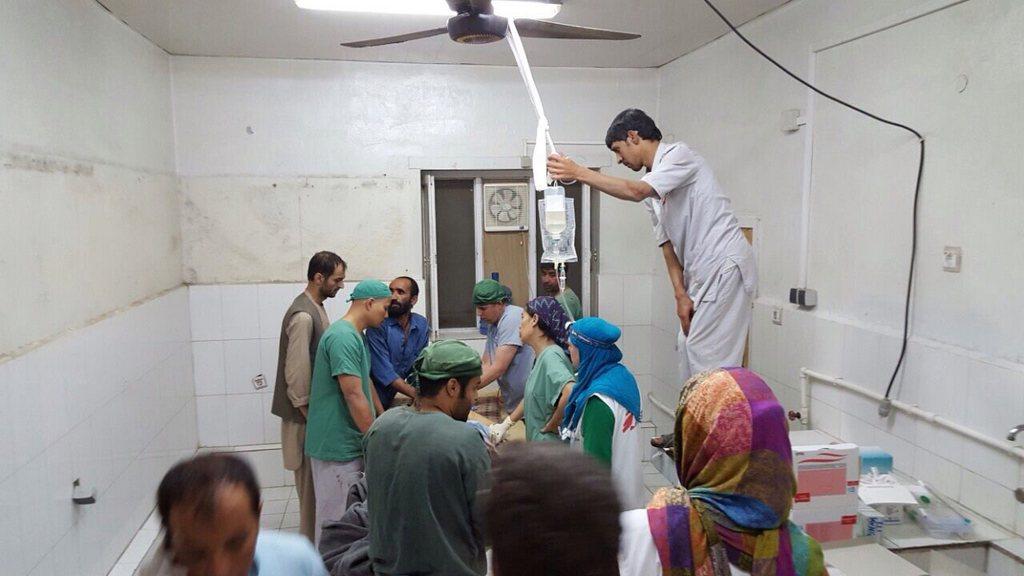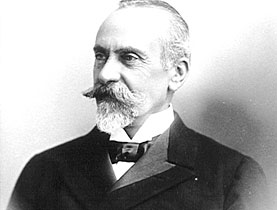Plans in place for Afghan bombing probe: IHFFC

A Swiss-based world body for investigating breaches of international humanitarian law says it has requested permission from the United States and Afghanistan – and already prepared an internal plan – for carrying out a confidential probe of the deadly US airstrikes on a medical charity's hospital in northern Afghanistan.
The International Humanitarian Fact Finding CommissionExternal link, or IHFFC, formally offered its “good offices” to those two countries and created a “draft agenda” on how it could immediately launch an investigation into the attack in Kunduz, Afghanistan, said Thilo Marauhn, a German expert on international lawExternal link who is the first vice president of the commission based in the Swiss capital Bern.
“So far, the IHFFC has sent letters to the US and to the Afghan government indicating that it is prepared to conduct an investigation should either of the two governments ask the commission to conduct such an investigation,” Marauhn told swissinfo.ch on Wednesday. “Without such a request by either government, we cannot conduct an investigation.”
Poised for action
The repeated airstrikes by an American AC-130U gunship in the early morning hours of October 3 devastated a hospital in Kunduz, killing 12 staff members of the medical charity Médecins sans Frontières (MSF) and 10 patients, and injuring 37 others.
The US military bombed the MSF’s trauma center in Kunduz in support of Afghan troops who called for back-up because they said they were under fire while clearing out Taliban insurgents. US officials called the airstrikes a mistake. President Barack Obama apologized to MSF’s international president.
Since its creation after the Gulf War in 1991 under the Geneva ConventionsExternal link, the intergovernmental commission has never before gained permission to conduct an investigation, owing to the requirement that nations suspected of violating international humanitarian law must be the ones to authorise it.
“It can be very quick. Once we would have a formal request from either of the parties concerned, we would become active,” Marauhn said. “Five or seven commission members would become active in this particular case. And it would be active within days.”
“We already have a kind of draft agenda, or mapping, for a potential investigation. Given the fact that we might be asked, we have been working on this in order to be prepared,” he added. “If someone is going to ask us, we will be there.”
Apologies ‘not enough’
The Geneva-based MSFExternal link has called the attack a “war crime” and said it could not rely on US, Afghan and NATO authorities to determine what happened.
“We have received apologies and condolences, but this is not enough,” said Joanne Liu, the MSF’s international president, who began publicly appealing for the commission’s involvement last week.
The US military has promised to conduct a thorough and transparent investigation. The White House said the Obama administration is confident that the military will provide a “full accounting”.
MSF said the US airstrikes destroyed the main building of its trauma center in Kunduz, and that the hospital is no longer operational, leaving tens of thousands of people without access to emergency medical and surgical care in a city devastated by weeks of intense fighting.
“We need to know if the rules of war have changed, not just for Kunduz, but for the safety of our teams working in front line hospitals all over the world,” Liu said in a statementExternal link.
Unused potential
The obscure Swiss-based commission was set up to investigate breaches of international humanitarian law during international armed conflicts rather than during internal fighting like what is taking place now in Afghanistan. Marauhn, however, said the October 3 airstrike would qualify for an investigation by the IHFFC if the parties to the conflict agree.
Comprised of a panel of 15 international expertsExternal link, the commission has been steadily improving its ability to conduct investigations and preparing itself for just such an eventuality. It is supposed to be able to mount an investigation on short notice for its member nations, which now number 76 but do not include the US or Afghanistan.
“Its services, however, have not been used to date,” the commission said in its 20th anniversary report in 2011. That remains the case today.
Previous offers to investigate
This is not the first time that the commission has offered to investigate a case; some of the previous offers included conflicts such as those involving Russia, Georgia, Ukraine, Israel and the Palestinians.
“The commission has always taken its responsibilities seriously and has indicated its willingness to offer its services to states,” said Marauhn.
If authorised, the commission would prepare a confidential report for the governments that requested it. The purpose of such a report would be to help governments decide whether they have breached international humanitarian law.
The commission has an agreement with the Swiss government for it to provide the necessary infrastructure to carry out investigations, though nations requesting the commission’s help would be responsible for providing support too.
Importance of finding facts
Marco Sassòli, an international law expert at the University of GenevaExternal link, said the need for nations to agree to investigate themselves “is the greatest weakness of the system”. He said he hopes the commission is asked to take on the Kunduz case “not simply because I like inquiries, but for the sake of international humanitarian law”.
That was the benefit of the twin US-Canadian military investigations into the Tarnak Farms incident of 2002External link that killed four Canadian soldiers and injured eight others in Afghanistan, Sassòli said.
In that incident, an American F-16 pilot mistakenly dropped a bomb on a training range near the southern Afghan city of Kandahar.
“It would be important to show that also not all the allegations are correct”, Sassòli said of the Kunduz attack. “We could learn about past errors.”

In compliance with the JTI standards
More: SWI swissinfo.ch certified by the Journalism Trust Initiative













You can find an overview of ongoing debates with our journalists here . Please join us!
If you want to start a conversation about a topic raised in this article or want to report factual errors, email us at english@swissinfo.ch.